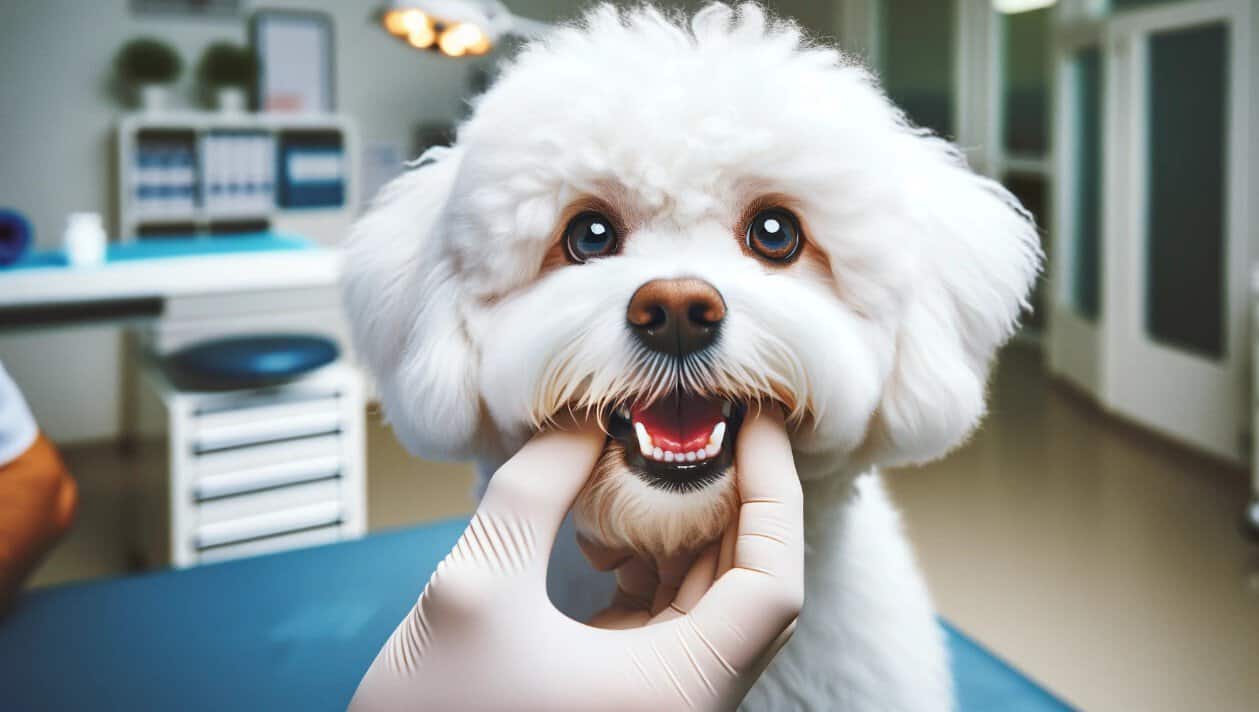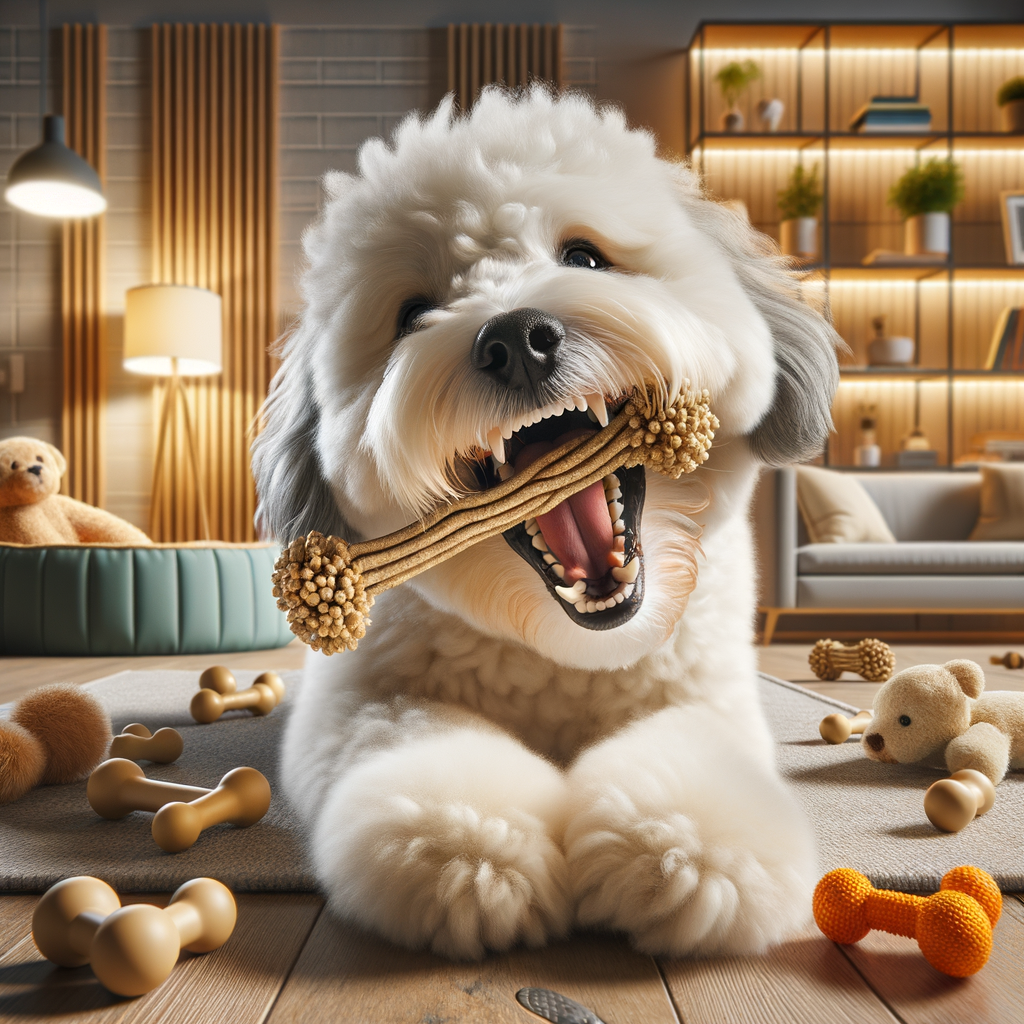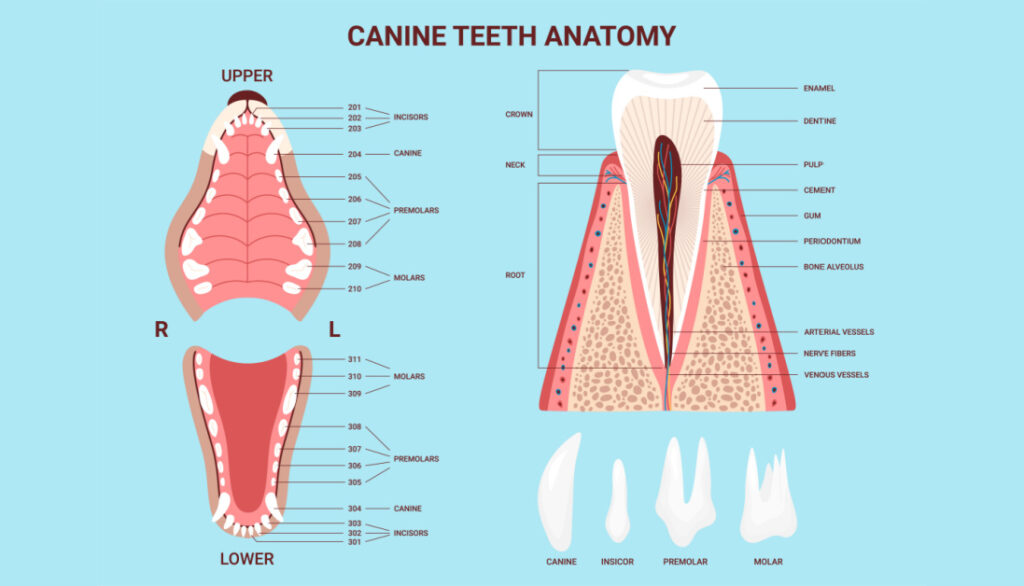Hi there, fellow dog lover! I’m Dr. Candy, your friendly holistic veterinarian. Today, we’re going to talk about something that’s incredibly important but often overlooked – Bolognese Dental Health. You see, just like us, our furry friends can suffer from dental issues. And if left untreated, these can lead to serious health problems.
When it comes to our adorable Bolognese dogs, their dental health is as crucial as their overall wellness. Many pet parents don’t realize that a dog’s oral health can significantly impact their overall health. Poor dental hygiene can lead to painful conditions and even systemic diseases like heart disease and kidney problems.
As a holistic veterinarian, I believe in the power of prevention. So, let’s explore how we can keep our Bolognese’s pearly whites healthy and prevent dental diseases. From recognizing the signs of dental disease to discussing conventional and holistic treatments, we’ll cover it all. So, buckle up and get ready to dive into the world of Bolognese Dental Health!

Signs of Dental Disease in Bolognese
As a holistic veterinarian, I want to help you understand how to recognize the signs of dental disease in your Bolognese. It’s crucial to maintain your furry friend’s dental health, as it impacts their overall well-being. So, let’s delve into the symptoms that indicate your Bolognese may be suffering from dental issues.
The most obvious sign of dental disease is bad breath. If your Bolognese’s breath is persistently unpleasant, it might be time to check their teeth. Another symptom is a change in eating habits. If your dog is struggling to chew or is eating less, this could signal a dental issue. Also, pay attention to any excessive drooling. While some dogs naturally drool more than others, sudden or excessive drooling can be a sign of dental disease.
Further, look out for red, swollen, or bleeding gums. Healthy gums should be firm and pink, not red or white, and should not bleed. If your Bolognese has discolored gums, it might be a sign of gingivitis or other oral health issues. Similarly, discolored teeth or tartar buildup are red flags. Healthy teeth should be white, and any yellow or brown discoloration can be a sign of plaque or tartar buildup, leading to more serious dental problems if left untreated.
Lastly, if your Bolognese appears to be in pain around the mouth area, it’s a clear indication of a dental health issue. This could manifest as your dog pawing at their mouth, being reluctant to have their face touched, or showing discomfort when eating or drinking.
Remember, early detection of dental disease can make a world of difference for your Bolognese’s health and quality of life. As dog parents, it’s our responsibility to ensure our pets are healthy and happy. Regular check-ups and vigilance for these signs will go a long way in maintaining your Bolognese’s dental health.
Stay tuned for the next section where we’ll explore common dental health issues specific to Bolognese and how to address them. Together, we can ensure your Bolognese enjoys optimal dental health for a lifetime of smiles.
Common Dental Health Issues In Bolognese
As a veterinarian, I often see Bolognese Dental Health issues that are unfortunately common in this breed. These small, white dogs are known for their charming and playful demeanor, but their dental health can often be overlooked. It’s essential to understand what dental problems your Bolognese may face to keep them healthy and happy.
- Periodontal Disease: This is the most common dental problem in Bolognese. It starts with the build-up of plaque and tartar, leading to gum inflammation (gingivitis). If left untreated, it can progress to periodontal disease, causing tooth loss and potentially affecting major organs.
- Bad Breath: Bad breath or halitosis in Bolognese is often a sign of underlying dental issues. It’s not just unpleasant for you; it could mean your Bolognese is in discomfort.
- Tooth Decay: Bolognese dogs are also prone to tooth decay, which can lead to painful cavities. Regular dental check-ups can help catch this early.
- Broken Teeth: Bolognese, like other small breeds, are prone to broken teeth due to their small mouth size and thin enamel. This can occur from chewing on hard objects or due to trauma.
Regular dental check-ups and a good oral hygiene routine can help prevent these common Bolognese Dental Health issues. Remember, a healthy mouth contributes to a healthy, happy Bolognese.

Conventional Dental Health Treatments for Bolognese
When it comes to Bolognese dental health, there are several conventional treatments that can help maintain your pup’s pearly whites. It’s crucial to remember that each dog is unique, and what works for one may not work for another. Always consult your vet before starting any new treatment.
Anesthetic Dental Cleanings
One common method for maintaining oral health in Bolognese dogs is through anesthetic dental cleanings. This procedure involves the use of anesthesia to put your dog into a sleep-like state, after which a professional cleaning is performed. The cleaning process removes plaque and tartar, which, if left untreated, can lead to severe dental problems such as periodontal disease.
While anesthetic dental cleanings can be effective, they’re not without potential risks. Some Bolognese may have health obstacles such as heart problems, drug sensitivities, or seizures that could make anesthesia risky. Additionally, very old dogs might have a harder time recovering from anesthesia. Always discuss these potential risks with your vet.
Potential Individual Health Obstacles
Every Bolognese is different, and their individual health status can affect their dental health and how they respond to treatments. For example, dogs with heart problems might have a higher risk of complications during anesthetic dental cleanings. Similarly, dogs with drug sensitivities might react adversely to certain medications used in dental procedures.
Seizures can also pose challenges for Bolognese dental health. If your dog has a history of seizures, certain dental procedures might trigger an episode. Lastly, age can present its own set of challenges. Older dogs are more prone to dental issues and may not tolerate certain treatments as well as younger dogs.
In all these scenarios, it’s vital to have open communication with your vet. Together, you can come up with a plan that ensures your Bolognese’s dental health while keeping their overall well-being in mind.
Remember, good Bolognese dental health isn’t just about treating problems as they arise, but preventing them from occurring in the first place. Regular check-ups, a good diet, and proper home care can go a long way to keeping your Bolognese’s teeth clean and healthy.
When it comes to Bolognese Dental Health, I believe in a holistic approach. This means looking beyond just brushing and dental chews. It’s about considering the overall health of your Bolognese, and this starts with their diet.

Diet: Low Carbs, Avoid Added Sugars, Enzymes In Fresh Food
Feeding your Bolognese a low-carb diet can significantly improve their dental health. Carbohydrates, especially the simple ones, break down into sugars in the mouth and can lead to plaque build-up and eventually to dental disease. So, try to limit the amount of carbs in your dog’s diet.
Added sugars are another culprit for poor dental health. They not only contribute to obesity but also to tooth decay. Always check the ingredients of your dog’s food and treats to ensure they are free from added sugars.
Lastly, incorporating fresh foods into your Bolognese’s diet can be hugely beneficial. Fresh foods, especially raw fruits and vegetables, contain natural enzymes that can help break down plaque and tartar. Chewing on a crunchy carrot or apple can act as a natural toothbrush for your dog, helping to keep their teeth clean and healthy.
Oral Health Specific Probiotics
Another part of my holistic approach to Bolognese dental health is the use of oral health specific probiotics. Just like in humans, a healthy gut microbiome is essential for overall health, and that includes dental health. Probiotics can help to balance the bacteria in your dog’s mouth, reducing harmful bacteria that can lead to dental disease.
I highly recommend Probiora for Dogs, an oral health targeted probiotic. This product is designed to support your dog’s oral health by promoting a healthy balance of bacteria in the mouth. It’s easy to use, just sprinkle it on your dog’s food once a day.
Remember, a holistic approach to your Bolognese’s dental health involves more than just brushing and dental chews. By considering their diet and incorporating probiotics, you can help to support their dental health and overall well-being. And as always, regular check-ups with your vet are essential to catch any potential dental issues early.

Recommended Dental Chews & Products For Bolognese
As a loving Bolognese dog parent, you’ve probably been inundated with a multitude of commercially advertised dental chews, all promising to keep your furry friend’s teeth sparkling clean and breath fresh. However, not all of these products live up to their hype. Many commercially promoted dental chews not only fail to deliver on their promises but can also be detrimental to your Bolognese’s dental health.
These dental chews often contain ingredients that can lead to plaque buildup and tooth decay. Moreover, they may contain artificial colors, preservatives, and flavors that can harm your dog’s overall health. Even worse, some dental chews and drinking water additives can harm the beneficial bacteria in your dog’s gut, disrupting the balance of their microbiome and potentially leading to other health issues.
So, what’s the solution? Thankfully, there are healthier alternatives out there that can effectively promote your Bolognese Dental Health. Here are some of Dr. Candy’s recommended dental chews and products:
- Single source natural proteins: These include tendons, raw marrow bones, and bully sticks. They are not only delicious for your Bolognese but also excellent for scraping off plaque and tartar from their teeth.
- Enzymatic dental chews: These chews contain enzymes that help to break down plaque and prevent tartar buildup. They are a great addition to your Bolognese’s oral hygiene routine.
- Dental wipes: Ideal for dogs who aren’t fans of tooth brushing, dental wipes can be used to gently clean your Bolognese’s teeth and gums.
- Probiotic supplements: These can help maintain a healthy balance of bacteria in your dog’s mouth, reducing the risk of dental disease.
Remember, every Bolognese is unique, and what works for one may not work for another. It’s always best to consult with your vet before introducing any new products into your dog’s dental health regimen.
By choosing the right products and maintaining a consistent oral hygiene routine, you can ensure your Bolognese’s teeth remain healthy and their breath stays fresh. After all, your Bolognese’s dental health is an integral part of their overall wellbeing.
Frequently Asked Questions
1. What causes bad breath?
Bad breath, or halitosis, can be caused by various factors such as poor oral hygiene, gum disease, dry mouth, certain foods, smoking, and underlying medical conditions.
2. How can I improve my oral hygiene?
To improve your oral hygiene and combat bad breath, it is important to brush your teeth at least twice a day, floss daily, clean your tongue, use mouthwash, and visit your dentist regularly for professional cleanings.
3. Are there any home remedies for bad breath?
Yes, there are some home remedies that can help freshen your breath. These include drinking plenty of water, chewing sugar-free gum, eating crunchy fruits and vegetables, using baking soda as a toothpaste, and rinsing with a mixture of water and apple cider vinegar.
4. When should I see a dentist about my bad breath?
If you have persistent bad breath despite practicing good oral hygiene, it is recommended to see a dentist. They can evaluate your oral health, identify any underlying issues, and provide appropriate treatment or refer you to a specialist if needed.
5. Can bad breath be a sign of a more serious health problem?
In some cases, chronic bad breath can be a symptom of an underlying health condition such as respiratory infections, diabetes, liver or kidney problems, or gastrointestinal issues. If your bad breath is accompanied by other concerning symptoms, it is advisable to consult with a healthcare professional.
